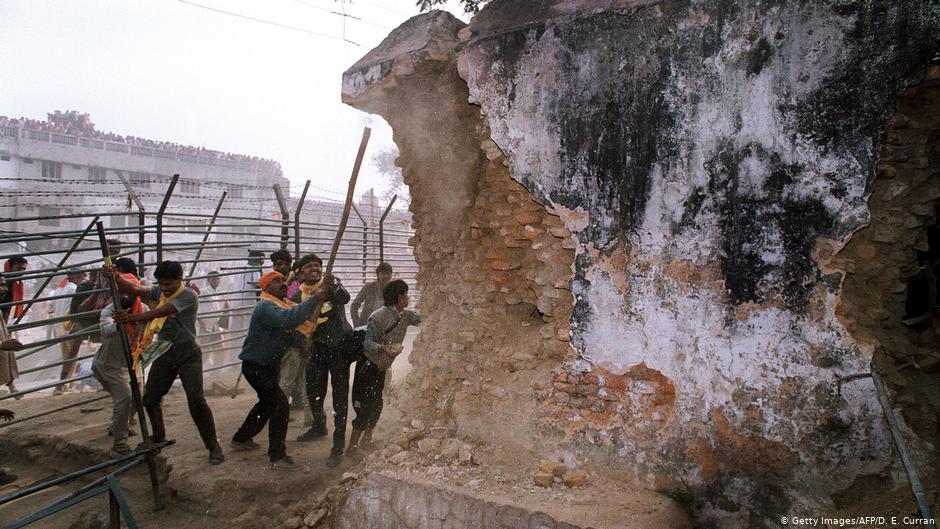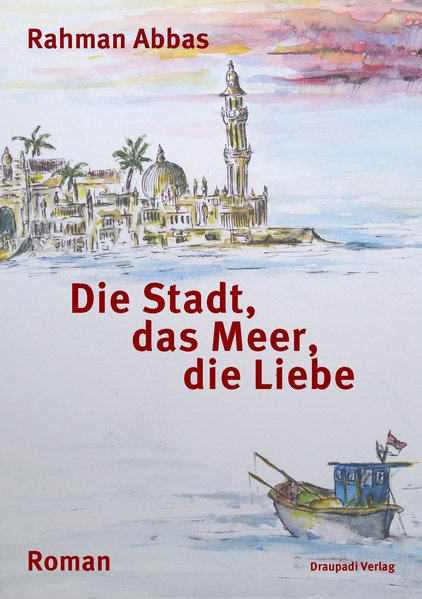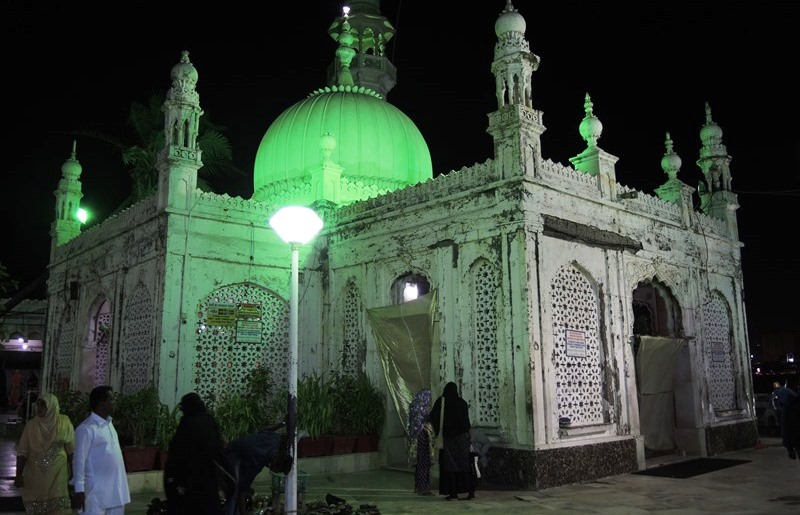Overcoming Indiaʹs social divide

As a 20-year-old you experienced what became known as the "Bombay Riots" of 1992/93. How has this unrest informed your literary work?
Rahman Abbas: There were fires everywhere at night. Rioters targeted the Muslim quarter, houses were destroyed, people killed. The police did nothing. For the first time in my young life, I sensed something creeping between myself and my Hindu friends, people I'd grown up with. Hindus and Muslims saw each another as opponents, everywhere in Bombay. They began to hate each other. It would take years for those feelings to recede.
My first novel, "Nakhalistan Ki Talash", is about my ensuing identity crisis. At the time, I became distinctly aware of what kind of family I'd been born into. Previously, it wasn't particularly important whether you were Muslim, Hindu or whatever. In this novel too, a Muslim boy senses for the first time why he can’t be safe. The "Bombay Riots" and what's happening in India today are forcing an identity onto a specific community. People like myself, too, who are known for criticising their own community and their theological system, are simply perceived as Muslims. The Jews in Germany must have felt similar back in the day.
Because of your first novel, you were even taken into police detention for several days. What happened?

Abbas: Conservative Muslims in Maharashtra viewed my novel as an obscene book. On the basis of a law that dates from the colonial era, I was indicted and upon the insistence of my critics, I also lost my job teaching Urdu at a college.
They claimed I was a bad influence on young people. In their view, my book questioned the Islamic value system, because in the novel there's a dream sequence in which my young protagonist recalls the most tender moments with his lover as he's in his prison cell shortly before his planned execution.
In another scene I describe how he passionately kisses his girlfriend on a university campus. But for many Muslims, kissing is still an obscene act, if you're not married. And even then, you can't kiss your wife in public. The case hung in the air for more than 10 years. I wasn't exonerated until 2016.
In 2016, the National Council for Promotion of Urdu Language (NCPUL) called on Urdu writers to practice self-censorship. You led protests against this directive. Can you give us some context?
Abbas: The NCPUL has been supporting Urdu writers and their books since the mid-1990s. Twenty years after its foundation, it published a letter calling on writers not to undermine the politics of the government or the interests of the nation in their work. They should also not write anything that might stoke conflicts between religious communities. Should an author contravene these directives, he would be required to pay back any financial support granted by the council.

To not undermine one's own nation – that I can accept. But it is my fundamental right to criticise the government. It is even the duty of a writer to take a stand against policies that are detrimental to the people.
Thereafter, many writers closed ranks, including many older writers from northern India, New Delhi and other parts of the country. We called on the government to withdraw this directive. After numerous newspaper articles and parliamentary debates on the subject of our initiative, it eventually complied with our request.
How do you explain this intervention from the NCPUL?
Abbas: That is totalitarianism. George Orwell described it, Kafka was also afraid of it: you don't know what your crime will be, and you'll need a decade to understand what your crime was. Writers can no longer think freely, let alone express themselves freely.
But Urdu is a very liberal and secular language. Urdu poetry celebrates the existence of God while criticising it at the same time. It is the only Indian language that celebrates wine, whisky and love so openly.
Urdu is actually very closely bound up with a liberal attitude. If you only associate it with a particular religion you're not doing it justice. After all, without Urdu, Hindi is incomplete and vice versa. Together they yield one language: old Hindustani. But politics has not only split Indian society along religious lines, but also along its linguistic borders.
In recent years, several writers and intellectuals who were critical of the Hindu nationalist Hindutva movement have been murdered. Is fear taking hold in your milieu?
Abbas: They don't target the lesser-known writers; those who've been murdered thus far, for example M.M. Kalburgi, were among the top writers in India. We know that the killers have a Hindu nationalist background. And this government is protecting the accused, not initiating any legal proceedings.
Other sections of the population, above all minorities, are affected to an even greater extent: For example, leading politicians from the governing party are actively protecting perpetrators who have committed crimes against minorities - Dalits, Christians or Muslims.

Today's Prime Minister Narendra Modi even shares responsibility for the pogroms of Gujarat: when he was Chief Minister of the state, he did nothing to stop those who committed crimes against the Muslim minority there for several days. These Hindutva fanatics are the brothers of the Taliban. They want to divide this society. We writers want to protect this society and defend the constitution that defines our identity as Indians.
You're a regular visitor at the Haji Ali Dargah shrine in Bombay. It also plays a significant role in your last prize-winning novel. What do you find so fascinating about it?
Abbas: All different kinds of people convene in many of these Sufi shrines. Not just from various Muslim communities, but also Hindus, Sikhs and Dalits. These shrines are open, there's no rigid understanding of God. Humanity is viewed as one. This tradition has always existed in India. The protagonist of my last novel "Rohzin" regularly meets his girlfriend in the Haji Ali Dargah shrine. It's a place of peace and beauty. Bombay also has this tradition and it's very strong.
Interview conducted by Dominik Muller
© Qantara.de 2019
Translated from the German by Nina Coon
Rahman Abbas, born in 1972, studied Urdu and English Literature at the University of Mumbai. His first novel, Nakhalistan Ki Talash, caused great controversy in India and led to a criminal case for "obscenity", which was not concluded until 2016 with an acquittal. Abbas won the "Sahitya Akademi Award" twice, in 2011 for his third novel "Khuda Ke Saaye My Ankh Micholi" and again in 2017 for "Rohzin".
